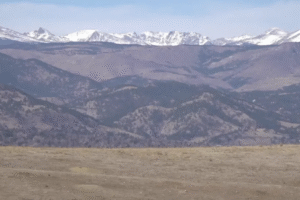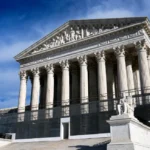Committee recommends $5 million for property tax relief
With other bills in the works, refund program viewed as “fallback”
- Published In: Other News & Features
- Last Updated: Dec 19, 2022
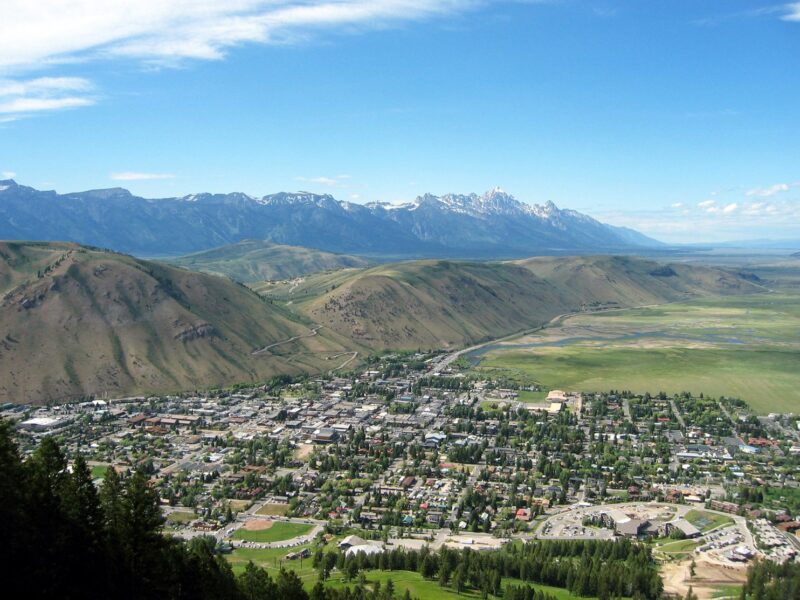
Property values in Jackson and other parts of Teton County have seen a “huge escalation” in recent years, leading to higher taxes as well. The Legislature will consider a host of property tax relief measures during the 2023 General Session. (Courtesy photo from Mlewis2005 via Wikimedia Commons)
By CJ Baker
Special to the Wyoming Truth
Wyoming lawmakers appear intent on providing residents with some relief from rising property taxes, though they have yet to decide exactly what help they’ll deliver.
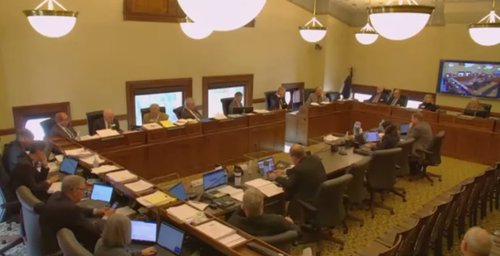
On Friday, the Wyoming Legislature’s influential Joint Appropriations Committee recommended that the state set aside $5 million for a property tax refund program — five times the amount requested by the governor’s office.
Though the Department of Revenue projected that an additional $1 million would fund the property tax relief program for the coming year, state Sen. Mike Gierau (D-Jackson) predicted demand for the refunds will keep growing amid a spike in home prices and taxes.
“I think that as the word gets out about this program, and as property values rise, it will raise exponentially,” Gierau said, “and I believe that this [additional] money will be necessary.”
Under the relief program, lower-income residents can get up to half of their property taxes refunded. Lawmakers discontinued the assistance in 2020, but revived it for the 2021 tax year. The state wound up providing $1.85 million worth of refunds to 3,085 residents across Wyoming, for an average payout of about $600. It was more than double the refunds paid to 1,411 residents in 2019.
Only about $1.15 million of funding remains for 2023, which is why Gov. Mark Gordon is asking the Legislature to put more dollars into the program.
“I think it’s just essential that as inflation hits everyone, … there needs to be some means to help all citizens of the state who are impacted by inflation deal with that,” Gordon’s policy director, Renny MacKay, told committee members last week, adding that, “we think this is a good program.”
To qualify for a refund, a resident can’t own more than $133,650 worth of assets per adult in the household (excluding the home, one vehicle per adult and retirement accounts) and can’t earn more than 75% of the state’s or their county’s median household income. (The state figure was $52,000 last year).
However, a bill being sponsored by the Legislature’s Revenue Committee would make more people eligible — allowing households earning up to 125% of the median income and holding up to $150,000 in assets per adult to qualify. It would also make it easier for owners of less valuable homes to get a full 50% refund. The governor is “absolutely interested” in the proposal, MacKay said.
A ‘huge escalation’ in values
Beyond inflation, Wyoming’s real estate market has faced pressure from new residents. Janine Bay Teske, a longtime school board member from Jackson, said the increase in remote jobs allowed more people to move to Wyoming, “instead of living in places like New York and California and the like which [are] constantly shutting down their schools.”
Property values were already notoriously high in Teton County, but Bay Teske said an influx of residents “created a very, very competitive real estate market that resulted in a huge escalation.”
State data shows residential property values shot up 22% from 2021 to 2022, with a 36% spike in Teton County. Wyoming homeowners were billed over $533 million in property taxes in 2022, representing a roughly $100 million jump from 2021 and not quite a third of Wyoming’s total property taxes. It might seem like a windfall for the schools, counties, community colleges and special districts receiving the dollars, but MacKay noted government agencies are facing the pinch of inflation, too.
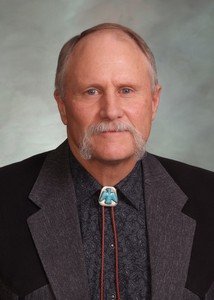
When compared to some other states, Wyoming’s taxes remain relatively low. Department of Revenue Director Brenda Hanson said that “our property tax structure is beneficial for many people that move to Wyoming.” But those on fixed incomes and longer term residents have been harder hit.
“I think as all of you campaigned this year, I would imagine that you heard, as I did, that this is something that’s top of mind [for] many, many of your constituents,” said Drew Perkins, a longtime legislator who now serves as Gordon’s chief of staff.
In Park County — where some homes doubled in value between 2019 and 2021 — one resident sent an October letter wishing death upon the assessor. The anonymous writer identified themselves as a senior citizen whose property tax bill had just jumped from about $1,900 to $3,100.
“All I can do is voice my opinion which falls on deaf ears but maybe at least when you and all the rest go to bed at night remember that there are many out there that truly hate you and hope the worst for you,” they wrote. They dismissed the refund program and another that provided $3.9 million worth of tax relief to veterans this year as a “joke.”
Lawmakers, assessors and others are mulling a host of ways to cap or reduce property taxes, such as tying residents’ taxes to what they originally paid for their home or creating special exemptions for residential properties. But some of those approaches could require amending the Wyoming Constitution and take years to implement.
Sen. Gierau supported the refunds; he proposed $10 million in funding before his colleagues trimmed the figure to $5 million.
“There’s a lot of tax bills floating around out there, but this program helps the people who need it most,” Gierau said.
However, Rep. Lloyd Larsen (R-Lander) and Sen. Larry Hicks (R-Baggs) indicated they want those receiving the property taxes to join the relief effort. Hicks said county governments “could help resolve this problem,” but most “have chosen not to.”
“Until such time as that happens, I believe this is a shared responsibility, not solely on the backs of the state,” he said before voting no on the funding.
As drafted by the Joint Appropriations Committee, the $5 million for the refund program would only kick in if no other property tax relief efforts pass the upcoming General Session; Sen. Dave Kinskey (R-Sheridan) described it as “a fallback if nothing else happens.”



